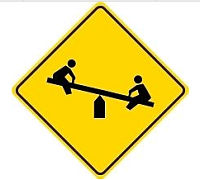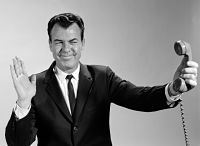Management
Behavioral CEOs: The role of managerial overconfidence. (2015)
"Overconfident CEOs have a higher tendency to undertake mergers... overestimate future earnings... borrow more aggressively against future earnings to avoid missing current earnings forecasts ..." Ulrike Malmendier, Haas School of Business...
Written by: Malmendier, Ulrike & Tate, Geoffrey.
Read moreThe dark side of leadership: Towards a mid‐range theory of hubris and greed in entrepreneurial contexts. (2015)
“Specifically, we examine the potential for, and the outcomes of, the display of greed and hubris in different entrepreneurial contexts. Katalin Takacs Haynes, University of Delaware; Michael A. Hitt, Texas...
Written by: Haynes, K. T., Hitt, M. A., & Campbell, J. T.
Read moreTipping point: Managers’ self-interest, greed, and altruism. (2015)
".. managerial hubris ... differs from self-confidence. "Hubris is an extreme manifestation of confidence, characterized by preoccupation with fantasies of success and power, excessive feelings of self-importance, as well as arrogance.” Katalin...
Written by: Haynes, K. T., Josefy, M., & Hitt, M. A.
Read moreOverlapping semantics of leadership & heroism: Expectations of omnipotence, identification with ideal leaders & disappointment in real managers. (2015)
‘Leaders’ and ‘heroes’ are so tightly linked in our semantic construction of the world that speaking of one easily evokes associations with the other. Jan Ketil Arnulf; BI Norwegian Business School,...
Written by: Arnulf, J. K., & Larsen, K. R.
Read moreToo arrogant for their own good? Why and when narcissists dismiss advice. (2015)
“…narcissistic managers may perform poorly because, among other reasons, they are particularly ineffective in taking advice from others when making decisions.” Edgar E. Kausel, University of Chile; Satoris S. Culbertson,...
Written by: Kausel, E. E., Culbertson, S. S., Leiva, P. I., Slaughter, J. E., & Jackson, A. T.
Read moreLearning from boardroom perspectives on leader character. 2015
"Directors agreed that the character of the CEO has a tremendous impact. And yet, they don’t spend enough time and effort assessing it. Ivey Business Journal, January/February 2015 Gerard Seijts, Professor of Organizational...
Written by: Seijts G., Gandz J. et al
Read moreDiabolical dictators or capable commanders? An investigation of the differential effects of autocratic leadership on team performance. (2015)
"...autocratic leadership is not always harmful and may at times also facilitate team functioning." Annebel H.B. De Hoogh, University of Amsterdam; Lindred L. Greer, Stanford University, California; Deanne N. Den...
Written by: De Hoogh, A. H., Greer, L. L., & Den Hartog, D. N.
Read moreIlluminating and applying ‘the dark side’: Insights from elite team leaders. (2015)
"...presents evidence of the use of dark side behaviors by elite team leaders, illuminates these behaviors look like during a common leadership task, and reveals how they were effectively applied." Andrew...
Written by: Cruickshank, A., & Collins, D.
Read moreNarcissism, director selection, and risk-taking spending. (2015)
“… when narcissistic chief executives interact with the board, they often meet not a moment of reckoning but their favourite thing: a mirror. David. H. Zhu, Arizona State University; Guoli...
Written by: Zhu, D. H. and Chen, G.
Read moreHow CEO hubris affects corporate social (ir)responsibility. (2015)
“CEO hubris leads to a lower level of company participation in socially responsible activities and a higher level of participation in socially irresponsible ones.” Yi Tang, Hong Kong Polytechnic University;...
Written by: Tang, Y., Qian, C., Chen, G. and Shen, R.
Read more














